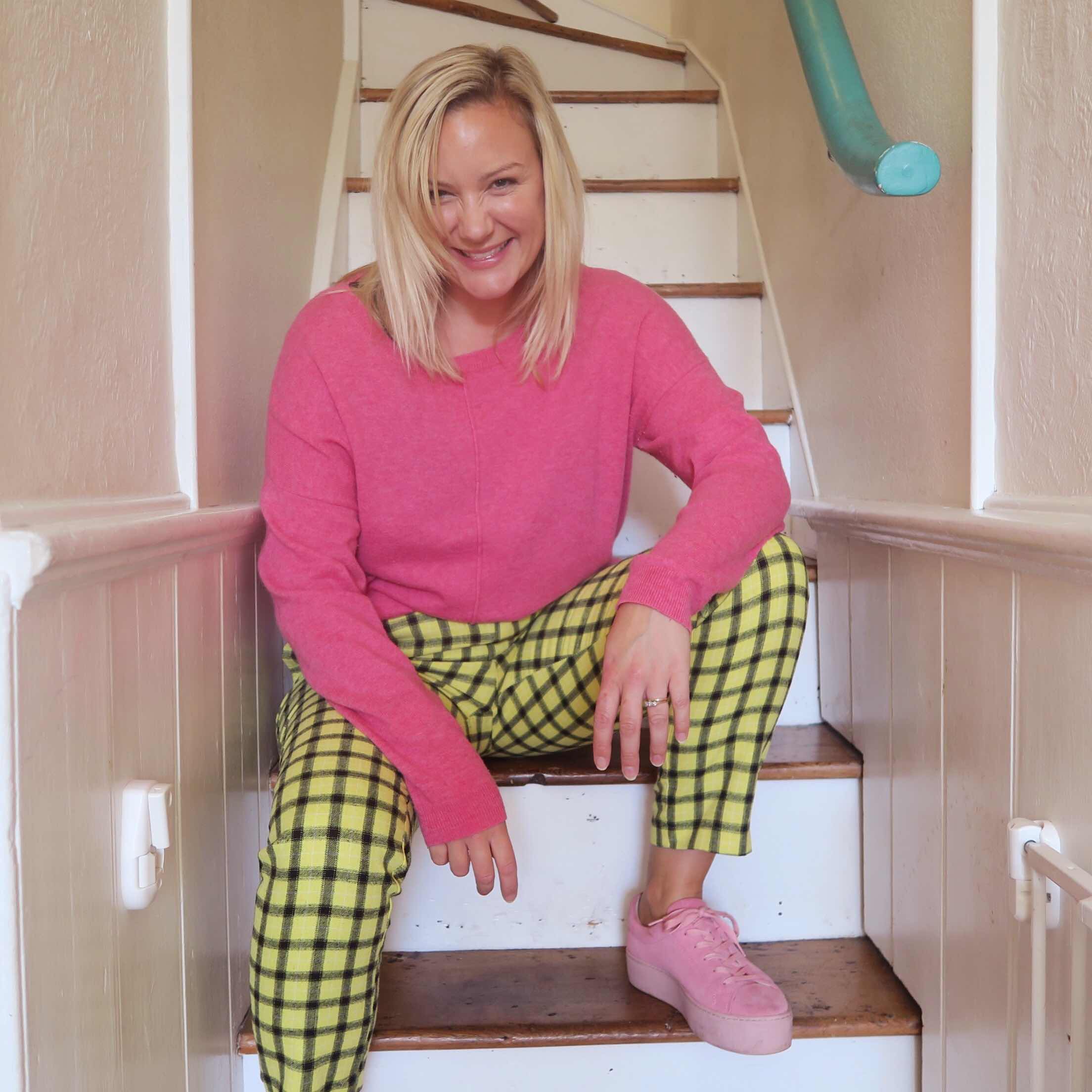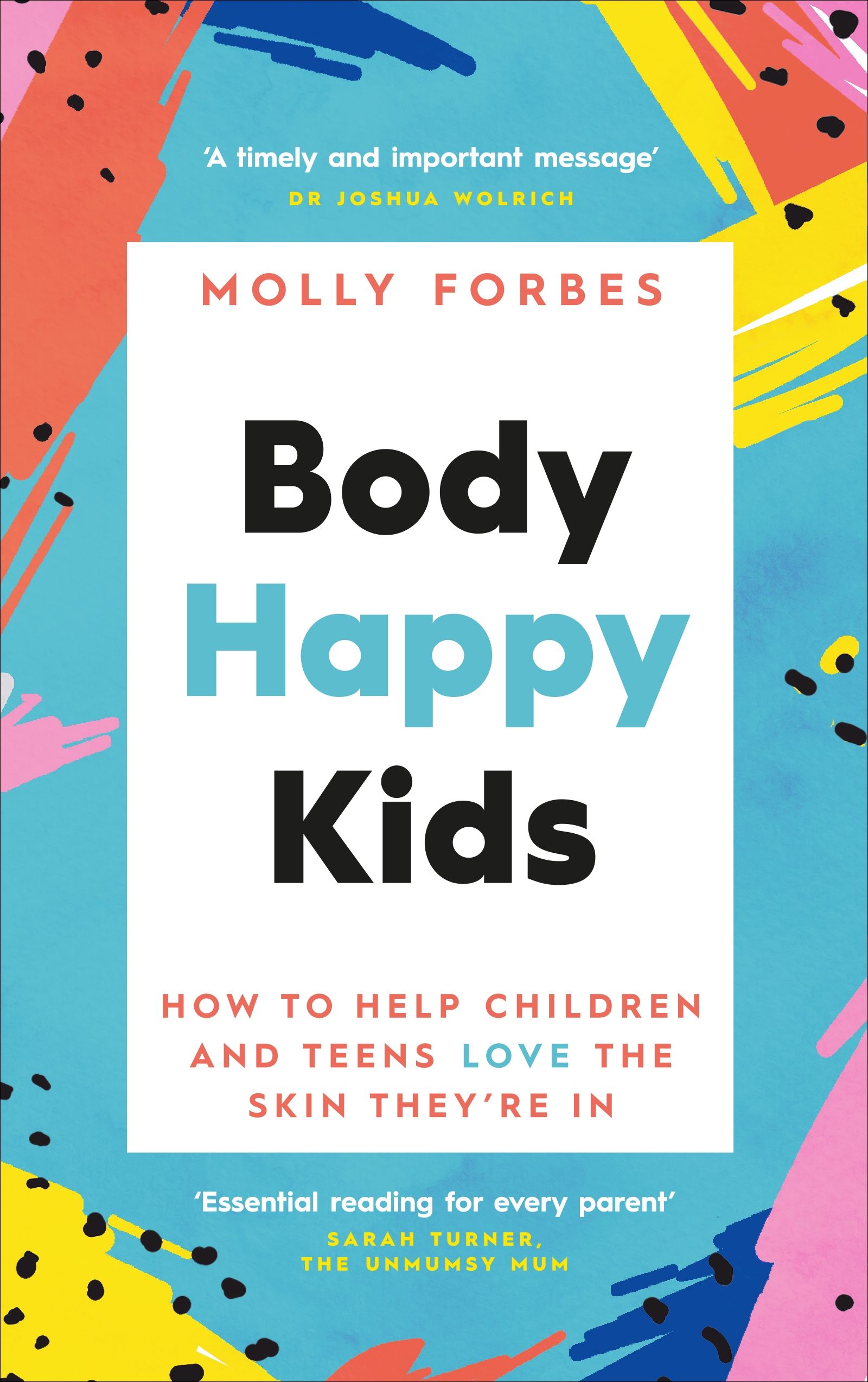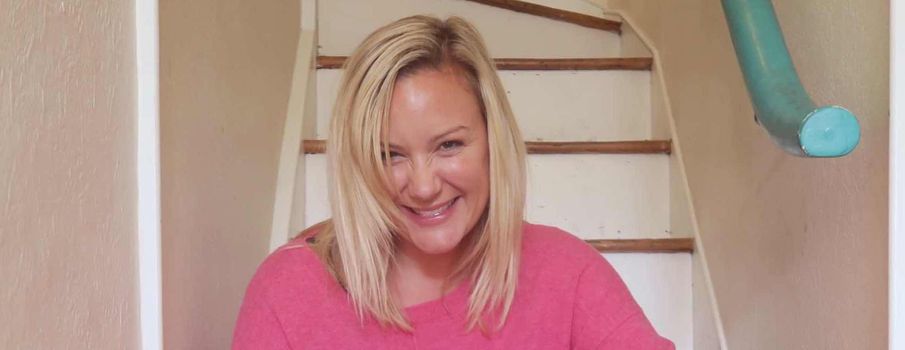Molly Forbes, campaigner, podcast host, presenter and founder of The Body Happy Org joins our podcast to chat about her new, wonderful book and how we talk about our bodies and to the children in our lives
Molly Forbes has written a book that each of us need, because whether we know it or not, we’ve all been impacted by diet culture and this will play a role in how we view ourselves and the unconscious messages we give out to others, including the children in our world.
Molly’s book, Body Happy Kids: How to help children and teens love the skin they’re in, is a labour of love and an amalgamation of her own experience, theory and practical exercises to try with children, to help identify where negative messages might be creeping in and where to make positive changes.
“I hope that Body Happy Kids will provide a really broad perspective to an incredibly complex, nuanced, multi-layered subject that ultimately impacts every single human being on this planet, but particularly is impacting children at the moment,” Molly explains.
“We’re seeing a lack of awareness of the importance of this subject. The way we think and feel about our bodies can impact all other aspects of our life. So I hope that Body Happy Kids will bridge that gap and I hope it's a book that not only parents will read but also teachers and any adults, if you have children in your life. It may even help you to unpick some thoughts about your own relationship with body image and those big meaty subjects!”

Molly Forbes
Passionate about changing body-shaming culture
A huge driver for Molly in everything she does, is her commitment to changing the body-shaming culture her children are growing up in. As a Mum of two daughters, a six and 10-year-old, Molly shares that she started to see the messages that they were receiving, making them feel not good enough and starting to value some bodies over others, which would impact the way they felt about themselves too.
“I started to recognise the messages that were coming for me when I became more awake to this, and then I noticed the messages were more insidiously coming for my children. That actually made me quite angry!”
“I’m at a place now where I don’t get angry as often,” Molly says. “It’s a very exhausting state to be in. I realised in writing this book that I need to tap into the positive things that we can do, rather than feeling angry and overwhelmed by it all.”
Be more baby
One of Molly’s examples of how we perceive and react to ourselves as we grow up, really stands out for me. The answer she suggests, is to think #BeMoreBaby.
“As we get older we start to step outside our bodies and we start living outside the experience and the moment of being in our body. We start to view our physical selves as almost a separate entity, and this is called self-objectification.
“When you really think about the first moments that we start to do that, it happens in childhood,” she explains. “When we’re babies and toddlers, we don’t do that.”
“I remember watching her, smiling, because that sort of joy is infectious, thinking ‘please don’t ever lose this.’ I don’t ever want her to lose that feeling, but I know at some point she will.”
Molly recalls a memory of when her young daughter was so overjoyed by a visit to the sea, that she ran across the beach, happily throwing off her clothes until she jumped into the water. “She didn’t care that there were other people around, she was just enjoying the feeling of the salty sea on her skin and the coldness of the water, whooping and screaming with delight - all of the feels!”
“I remember watching her, smiling, because that sort of joy is infectious, thinking ‘please don’t ever lose this.’ I don’t ever want her to lose that feeling, but I know at some point she will. I know at some point she’ll start viewing herself from the outside, because that’s what we do as humans.”
We are all a work in progress
Molly’s aware that for a lot of adults, our own relationship with our bodies can be deeply problematic and that there’s no quick fix, but there are ways we can start to address it.
“I don’t think we need to learn to love our bodies in order to make the kids around us love their own bodies. I think that for so many of us that isn’t an achievable thing, and it’s certainly not an achievable thing overnight. Especially not when we’ve grown up in a culture where we’re constantly learning that we’re not enough as we are. You can’t just suddenly wake up one morning and unlearn all those messages, that’s just unrealistic.”
However, as she explains, there are things that we can start to do to address our own body perception challenges, alongside supporting the children in our life. “We can start questioning some of the ideas and stories we tell ourselves. Learn to start noticing those thoughts and take a really neutral, removed perspective on them. So for example, ‘I’m thinking about why I can’t eat that, wear that, go there...that’s interesting. Noted.’”

Body Happy Kids by Molly Forbes
“And when you start noticing your self-talk, take it gradually, gently and be super compassionate with yourself. If you find it difficult or too fast, you’re allowed to slow down or stop.”
Molly has a challenge for us all. “Having the end goal of ‘could you have your own #BeMoreBaby moment?’” she laughs, “Could be a really wonderful thing for you.”
Listen to Molly’s full episode of I am. I have
Find out more about Molly’s work at The Body Happy Org
Order Molly’s book Body Happy Kids: How to help children and teens love the skin they’re in
If you’re looking for a therapist, find the right one for you on Counselling Directory.


Comments